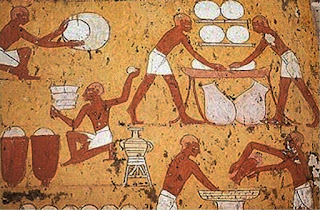Childbirth and a New Understanding of Biblical Impurity - Torah portion Tazria-Metzora

Pregnant Phoenician goddess, c. 7th C BCE This week's Torah portion opens with laws concerning childbirth and the ensuing status of impurity ( tum'a ) for the mother. One feature of these rules that begs explanation is why it should be that the duration of the mother's impurity should be twice as long following the birth of a girl (14 days, followed by an additional 66, for a total of 80 days) as for a boy (7 days, followed by 33, for a total of 40 days). Really, there are several questions here: 1. Why should childbirth render the mother impure? 2. Why should the birth of a girl double the duration of impurity? Which is all related to the meta-question: 3. What is the rationale for biblical impurity? If we can answer the third question, perhaps we can understand the logic behind the first two. The causes of biblical impurity In order to explore the rationale, we first need to know the cases. What does the Torah view as imparting tum'a ? Biblical ...


